
About Andrew Cusack
 Writer, web designer, etc.; born in New York; educated in Argentina, Scotland, and South Africa; now based in London.
Writer, web designer, etc.; born in New York; educated in Argentina, Scotland, and South Africa; now based in London. read more
News
Blogs
Reviews & Periodicals
Arts & Design
World
France
Mitteleuropa
Knickerbockers
Argentina
The Levant
Africa
Cape of Good Hope
Netherlands
Scandinavia
Québec
India
Muscovy
Germany
Academica
Notes of the Netherlandic Church
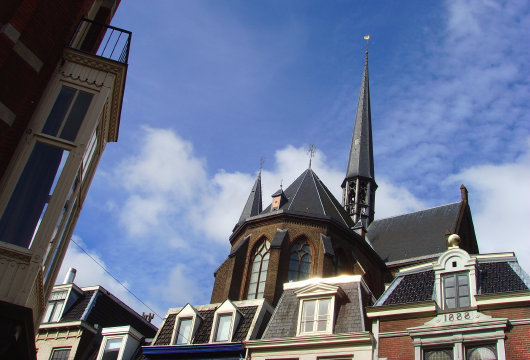
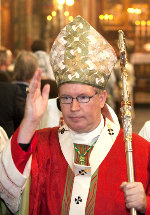
Willem Jacobus Eijk, Primate of the Netherlands
THE ANCIENT FORM of the Roman rite has returned to weekly use in Utrecht, the primatial see of the Netherlands. Under the guidance of Wim Eijk, Archbishop of Utrecht, the Church of St. Willibrord has introduced a weekly Tridentine liturgy each Sunday at 5:30 pm, to complement the 10:30 am Mass in Latin in the Ordinary Form. (Previously the old rite was offered only once monthly). The Extraordinary Form will be offered by Fr. A. Komorowski & Fr. M. Kromann Knudsen, both of the Priestly Fraternity of Saint Peter (FSSP, or Priesterbroederschap Sint Petrus in Dutch). St. Willibrord’s is a brilliant example of the nineteenth-century revival of gothic architecture, and the concurrent revival of Dutch Catholicism. Yet the parish was also emblematic of the Dutch church’s implosion in the 1960s & 70s. This beautiful, polychromatic monument to God was deconsecrated in 1967, and the diocese planned on demolishing the building. It was later sold, however, and occupied by an Assumptionist priest who continued saying the older form of mass. Joseph Luns, sometime NATO secretary-general and Dutch foreign minister, was a supporter of the apostolate at St. Willibrord’s.
The recently installed archbishop was keen to regularize the former parish’s situation, and erected it as a non-territorial parish under the auspices of the Vereniging voor Latijnse Liturgie (Association for Latin Liturgy) which promotes Latin in both the ordinary & extraordinary forms of the liturgy. The parish newsletter now proclaims that, at St. Willibrord’s, “all masses are once again celebrated ‘ad orientem'”, and both Sunday masses are accompanied by Gregorian chant. The church also revived, starting in 2002, the Procession of the Relics of St. Willibrord, which is held during the annual festival that opens the cultural season in Utrecht, in order to expose the tradition to a wider audience.
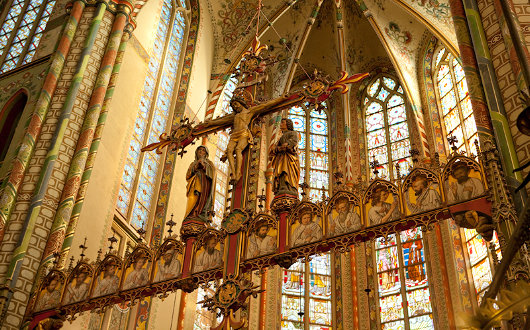
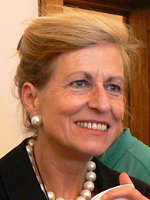
Henriëtte Baroness van Lynden-Leijten
In other news, Henriëtte Baroness van Lynden-Leijten has been appointed by Queen Beatrix of the Netherlands as her Ambassador Extraordinary & Plenipotentiary to the Holy See. The Baroness was born in Gilze en Rijen in North Brabant in 1950, and has three daughters with her husband, Baron Carel Diederic Aernout van Lynden, a respected journalist.
After studying social sciences, philosophy, and Arabic in Amsterdam, Baroness van Lynden-Leijten began her diplomatic career in 1980, and previously served as Ambassador to Bulgaria from 2001 to 2005. Until her appointment to the Vatican, she was Director of the Department for North Africa & the Middle East at the Dutch Ministry of Foreign Affairs.
“The defence and promotion of freedom is a key element in humanitarian engagement of this kind, and it is one to which both the Holy See and the Kingdom of the Netherlands frequently draw attention,” Pope Benedict said in his discourse accepting the new ambassador’s credentials.
“While some of the Dutch population would declare itself agnostic or even atheist, more than half of it professes Christianity, and the growing numbers of immigrants who follow other religious traditions make it more necessary than ever for civil authorities to acknowledge the place of religion in Dutch society. An indication that your Government does so is the fact that faith schools receive state support in your country, and rightly so, since such institutions are called to make a significant contribution to mutual understanding and social cohesion by transmitting the values that are rooted in a transcendent vision of human dignity.”
The Holy Father concluded by invoking God’s abundant blessings upon the Ambassador, her family, and all the Kingdom of the Netherlands.
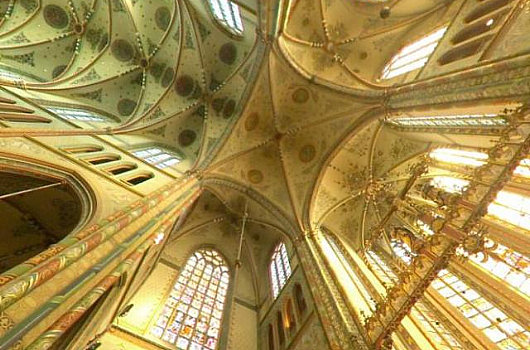
Search
Instagram: @andcusack
Click here for my Instagram photos.Most Recent Posts
- Sag Harbor Cinema March 26, 2025
- Teutonic Takeover March 10, 2025
- Katalin Bánffy-Jelen, R.I.P. March 3, 2025
- Substack Cusackiensis March 3, 2025
- In the Courts of the Lord February 13, 2025
Most Recent Comments
Book Wishlist
Monthly Archives
Categories



What a lovely church!!
It seems as though we moving away from the days of the infamous Dutch Catechism. Deo Gratias et Mariae!